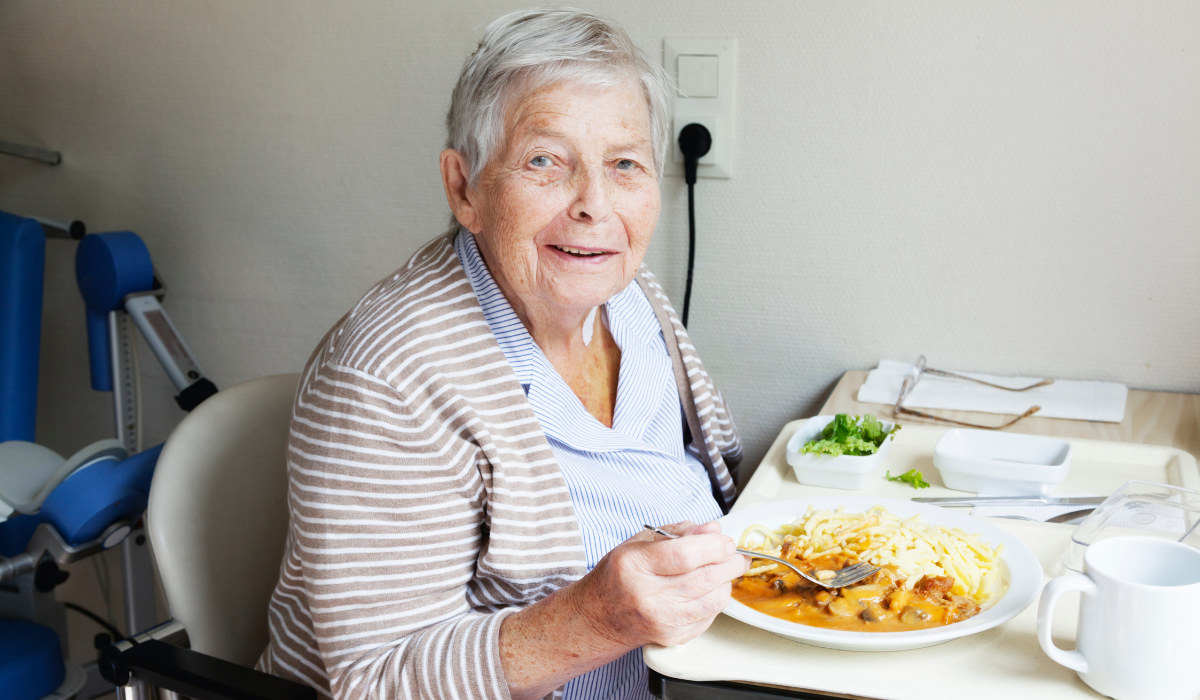Nutrition for Chronic Pancreatitis

Nutrition plays an important role in the management of chronic pancreatitis (CP). An effective diet can help patients minimize flares and pain, prevent malnutrition and other CP-related complications, and maintain stable blood sugar levels. The following guidelines can help navigate food choices while living with chronic pancreatitis. It is important to remember that recommendations might differ from your own individual needs, which may change over time. Use this advice to talk to your care team about what’s best for you.
Chronic Pancreatitis Diet
Experts recommend people with chronic pancreatitis eat low-fat, high-protein foods. Depending on specific and personal nutrition needs, daily fat intake is typically limited to anywhere between 30 and 50 grams per day for CP patients (in the U.S.). Instead of eating 3 large meals, it’s recommended to eat 4-6 small meals and snacks spread throughout the day. If you have diabetes, it’s important to monitor carbohydrate and sugar intake to help control blood sugar levels. If you have exocrine pancreatic insufficiency (EPI) or malabsorption, it may be necessary to take pancreatic enzymes and additional nutritional supplements.
Watch our webinar on nutrition for chronic pancreatitis.
Recommended Foods for Chronic Pancreatitis
Chronic pancreatitis patients should try to eat a well-balanced, low-fat diet.
Foods to eat with chronic pancreatitis may include:
- Fruits (fresh, frozen, and canned)
- Vegetables (fresh, frozen, and cooked)
- Whole Grains (bagels, breads, cereals, pastas, rice, etc.)
- Low-fat/non-fat dairy (milk, cheese, yogurt, etc.)
- Lean cuts of meat, poultry, and fish (without skin)
- Egg whites
- Almond/rice milk
- Beans and lentils
- Broth
- Spices/herbs (as tolerated)
- Honey and syrups (limit with diabetes)
- Low-fat/non-fat salad dressings
- Non-dairy creamer
- MCT Oil (medium-chain triglycerides, if needed)
Foods to Limit with Chronic Pancreatitis
Certain foods can cause pain, so it’s important to avoid foods that may trigger symptoms.
Foods to avoid with chronic pancreatitis may include:
- Avocado
- Fried/stir-fried vegetables
- Fried or buttery grains (biscuits, croissants, fried rice, etc.)
- Fried, fatty meats, poultry, and fish (with skin)
- Organ meats (liver, etc.)
- Canned meats in oil
- High-fat dairy (cream sauces, fried cheese, milkshakes, etc.)
- Coconut milk, nuts, and nut butters
- Refried beans
- Lard
- Mayonnaise
- Alcohol, including foods prepared with alcohol
Tips for Eating with Chronic Pancreatitis
Diet and cooking tips for chronic pancreatitis:
- Eat 4-6 small meals throughout the day
- Spread out your fat intake throughout the day
- Bake, steam, roast, or grill meats and vegetables
- Use fat-free cooking sprays
- Air-fry foods (without butter or oil)
- Read food labels, and choose foods labeled “low fat”, “non-fat”, “fat-free”, and “light”
- Research low-fat menu options before eating out
- Avoid greasy/fried foods
- Avoid alcohol completely
- Let servers know about your nutritional needs when eating out
Low-fat food swaps for chronic pancreatitis:
- Breakfast Swap. Instead of granola with nuts and milk or yogurt, try whole cereals with berries and fat-free milk or yogurt.
- Snack Swap. Instead of processed chips or nachos, try air-fried potato chips or popcorn (without butter or oil), peppers, or carrots.
- Cooking Swap. Instead of butter, oil, or lard, try a cooking spray.
- Meal Swap. Instead of fish and chips, try steamed/baked cod or pollock with brown rice.
- Vegetable Swap. Instead of avocado, try cucumber or broccoli.
- Poultry Swap. Instead of fried chicken or chicken nuggets, try skinless chicken breast.
- Fish Swap. Instead of salmon, try cod or pollock.
- Grain Swap. Instead of white bread, try whole-grain bread.
- Dessert Swap. Instead of brownies or chocolate cake, try meringue, fruit sorbet, or applesauce.
Pancreatitis-Friendly Recipes

5 Delicious Smoothie Recipes for Pancreatitis
Pancreatitis can sometimes make getting a proper amount of nutrients difficult. Chronic pancreatitis hinders the release of pancreatic enzymes, making it hard for the body

5 Delicious, Low-Fat Soup Recipes for Pancreatitis
There’s nothing quite like a warm bowl of soup to bring comfort when you’re feeling under the weather. But what happens when your “under the
Why is nutrition important?
Chronic pancreatitis causes issues in digestion, which can lead to nutritional challenges. As a result, it’s important for patients to make sure they’re getting the right nutrition to avoid unwanted complications.
Common nutritional challenges for chronic pancreatitis patients include:
- Exocrine Pancreatic Insufficiency. Exocrine pancreatic insufficiency (EPI) occurs when the pancreas does not make enough pancreatic enzymes, making it difficult for your body to digest food. About 15-30% of people with CP have EPI.
- Malnutrition. Malnutrition is a condition caused by the body not being able to absorb nutrients from food. Patients with chronic pancreatitis are at an increased risk of malnutrition, and 5% of people with CP are likely to need tube feeding.
- Type 3c Diabetes. Type 3c diabetes, also called pancreatogenic diabetes, is diabetes that is due to diseases of the exocrine and endocrine functions of the pancreas. In CP patients, 80% carry a risk of developing diabetes.
Things To Consider
MCT Oil
MCT (Medium Chain Triglyceride) oil is a type of fat that is absorbed directly into the blood, without being broken down by pancreatic enzymes. MCT oils may be a good source of fat for chronic pancreatitis patients and may help alleviate some of the challenges caused by eating a low-fat diet. MCT oils are found in coconut and palm kernel oils and can be mixed into your foods. It’s recommended to start with 1 to 3 TBSP of MCT oil per day if needed.
Pancreatic Enzyme Replacement Therapy
People with chronic pancreatitis are at risk of developing exocrine pancreatitis insufficiency (EPI), which can cause malnutrition and weight loss. If you have EPI, it may be beneficial to talk to your doctor about getting a prescription for pancreatic enzymes, which can improve protein and fat absorption, and alleviate digestive symptoms.
Learn more about Pancreatic Enzyme Replacement Therapy.
Nutritional Supplements
If you are at risk of losing weight and malnutrition, talk to your doctor about nutritional supplements. These include fat-free and high-calorie protein drinks and certain vitamins and minerals (if you are deficient).
Key Takeaways
- Chronic pancreatitis patients should eat a well-balanced, low-fat, and high-protein diet
- Generally, chronic pancreatitis patients should stick to 30-50 grams of fat per day (U.S. recommendation)
- Nutrition in chronic pancreatitis patients is important because CP can cause complications like malnutrition, exocrine pancreatic insufficiency, and diabetes
- Some pancreatitis patients may need to take pancreatic enzymes and include nutritional supplements in their diet
